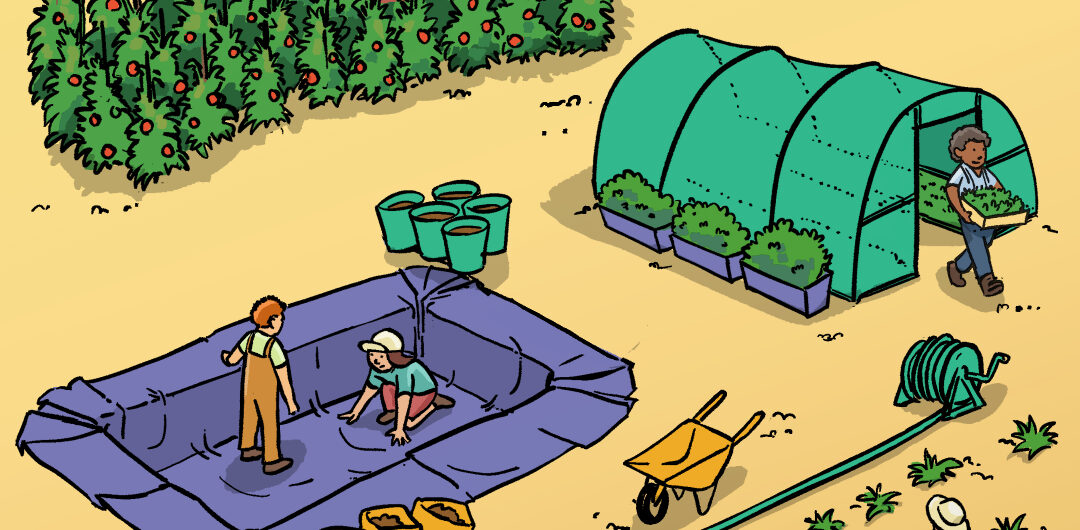Springtime is gardening time. Many of us are drawn to the garden again, and there is a lot to do there. But beware: tools and materials can contain problematic substances that can be harmful for health and the environment.
In a recent study, the German environmental organisation BUND had gardening products such as pond liners, gloves and garden shoes tested by an independent laboratory. They discovered phthalates, Bisphenol A and Medium chain chlorinated paraffins (MCCPs).
Problematic chemicals for health and environment
These chemicals were found in the gardening products:
Phthalates
Phthalates are plastic additives that make hard plastic products pliable. Without these plasticizers the plastic can become brittle. They are used especially in PVC plastic. Some chemicals in this group have been classified for years as harmful to reproduction and hormones, among them DIBP and DEHP. They can disrupt sexual development in children and impair fertility. Since 2020, it has therefore been prohibited to put products into circulation that contain these substances above 0.1 %. This applies to products used indoors or with a lot of skin contact. For outdoor products without much skin contact there is an exemption. Regardless of the type of use, the production of products containing pollutants is a general problem for the environment and health. For example, such products cannot be recycled in a proper way.
Medium-chain chlorinated paraffins (MCCPs)
MCCPs are added to plastics as plasticizers and flame retardants. They are very persistent and can accumulate in humans and animals. These chemicals are also very toxic to animals that live in the water.
Bisphenol A (BPA)
BPA is used as a plastic additive. It serves as an antioxidant and heat stabilizer. BPA is harmful to reproduction and an endocrine disruptor. It has an estrogen-like effect in the body and can affect the development of fetuses and young children.
How to avoid problematic chemicals
Avoid plastics and especially PVC. Look for plastic-free alternatives. Ponds, for example, can also be sealed naturally with clay. If it absolutely has to be foil, choose products made of flexible polyolefins (FPO) or polyethylene (PE).
Do not misuse garden products. Do not use pond liners for wading pools or raised beds, and do not give soft plastic garden items to children to play with. Do not store unwrapped pond liners indoors.
Use your right to know
You have the right to ask producers and retailers about the presence of the so-called Substances of very high concern (SVHCs) under the EU Chemicals Regulation REACH. SVHCs can be carcinogenic, reprotoxic and mutagenic, they can be persistent, bioaccumulative and toxic, or very persistent and very bioaccumulative, or of a similar level of concern, such as endocrine disruptive (affect the hormone system).
Let´s make a change
With the Scan4Chem app you can scan the barcode of a product and ask manufacturers of garden utensils and retailers about the presence of SVHCs. This way, it can help you to choose safer products. It will also show the companies that we, the consumers, care and do not want to buy products containing hazardous substances.
Use the Scan4Chem app and find out if your favourite producer of gardening supplies has phased out these substances from their production.
Download the app and send your requests. Together we can make products safer!
